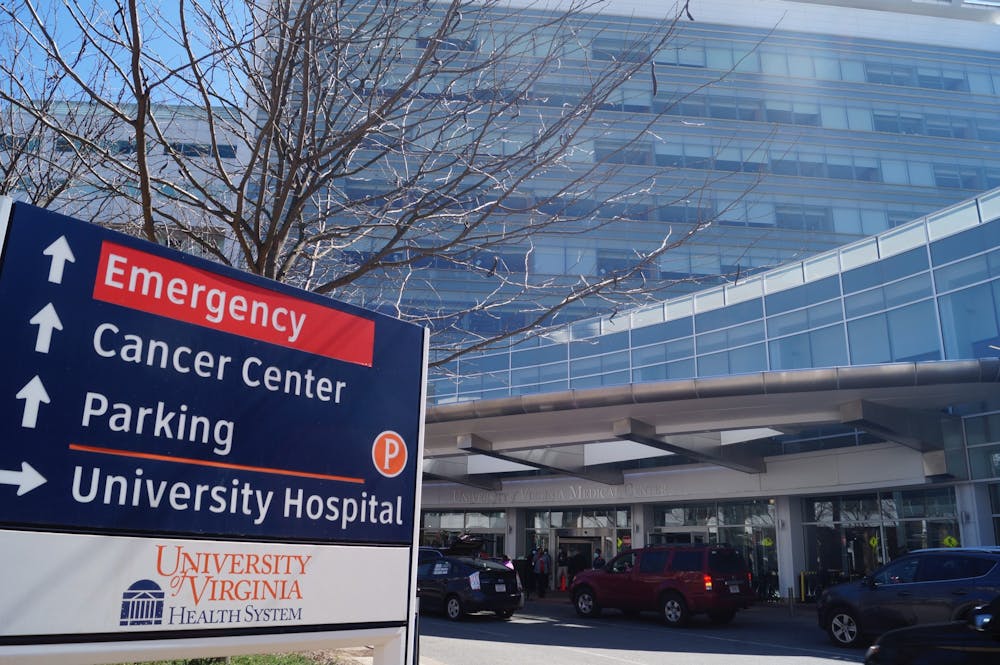With the Supreme Court’s recent decision to overturn Roe v. Wade, the U.S. has yet another public health crisis among continuing COVID-19 cases — the latter of which has placed great stress on the healthcare system for the past two years. Debates over whether healthcare a right, whether abortion is healthcare, whether vaccines can be legally required and other such topics continue to permeate American political discourse. Healthcare has always been politicized, but these days it seems more impossible to depoliticize healthcare and ensure that Americans are receiving equal, quality and affordable access to healthcare. Unfortunately, not only is the American government — but especially the Supreme Court — failing the American people, but so is our healthcare system.
According to an article published by Harvard Medical School, there are several contributing factors as to why the American healthcare system can be considered “broken.” Reasons include high cost of and unequal quality of care, healthcare being tied to employment, health disparities and an overemphasis on procedures and prescription medications. Unfortunately, it is usually a combination of these factors that can affect an individual seeking care.
For instance, for people with high deductibles and copays, it is often more economical to stay home when they are sick and to simply take care of themselves. The alternative often entails going to see a doctor who will not perform tests outside of the standard strep and COVID-19 test, and then will send them home with a prescription for cough syrup and a $25 copay cost. As for the uninsured, that bill would be significantly higher in addition to the cost of sometimes unnecessary or inefficient prescription medications.
People of color often face even more barriers to their most basic healthcare needs. People of color are more likely to be among the 31.6 million uninsured Americans. Those who can only afford basic government- based insurance experience may face a shortened list of medical providers willing to accept their insurance. Even after finding a provider, people with this insurance type are more likely to report a lower quality of care. Then there is the issue of employer-sponsored insurance, of which there are ethnic and racial disparities. The American Bar Association describes such phenomena as the “coverage gap,” where people of color may have an income too high to qualify for government sponsored insurance, but not high enough to benefit from marketplace plans.
Another problem with the health system is that it is largely tied to the job market. Unfortunately, having a job does not necessarily equate to your insurance plan being an affordable or a financially sound decision. Over half of Americans receive their healthcare plan from their employer making many Americans dependent on their employer for basic survival needs. This is a phenomenon known as “job lock,” when people feel they cannot leave their job for fear of losing their insurance benefits. The fact that insurance is considered a benefit and is used as an employment lure is absurd. Most absurd of all, is that some employers cap hours in order to avoid insuring their workers. The fact that healthcare is tied to employment implies that one must prove themselves to be a productive member of society before they can gain the right to health. People have value outside of their ability to work, and yet, the American employer-sponsored health system does not reflect that.
It is inevitable that the American healthcare system will have to make radical changes in order to fix its many internal problems. However, there are solutions. There are strong economic benefits for separating health care from employment. One example being that people may be more willing to take greater financial risks — such as starting their own businesses — if they do not feel tied to their current employer. What is a hopeful sign is the Great Resignation. During the wake of COVID-19, people realized they did not have to stay tied to a job that was not serving their needs. However, for America’s low-income population — who often have to choose between their health and their income — this is not so easily done. Therefore, the government needs to recognize and meet the healthcare needs of every American, regardless of racial or economic status, so that everyone who wants to participate in the Great Resignation can do so without restriction.
When I graduate from the University, I am likely to lose my healthcare status if I do not continue with my education immediately after. I will become one of the 31.6 million uninsured Americans, unless I can secure a job post-graduation that comes with an affordable insurance plan. While the idea of not having health insurance or having to worry how to pay for healthcare may seem like a distant concept at our relatively wealthy university, it is happening to students and to Americans across the nation. The right to affordable, accessible and quality healthcare is a human right. Being denied an abortion is a violation of one’s right to health, so is being denied affordable and equal treatment or having to prove one is a prodcutive member of society. Healthcare in this country has been politicized and used as a means of exploitation for far too long. It is time to repair this broken system.
Yssis Cano-Santiago is an Opinion Columnist for The Cavalier Daily. She can be reached at opinion@cavalierdaily.com.
The opinions expressed in this column are not necessarily those of The Cavalier Daily. Columns represent the views of the authors alone.





